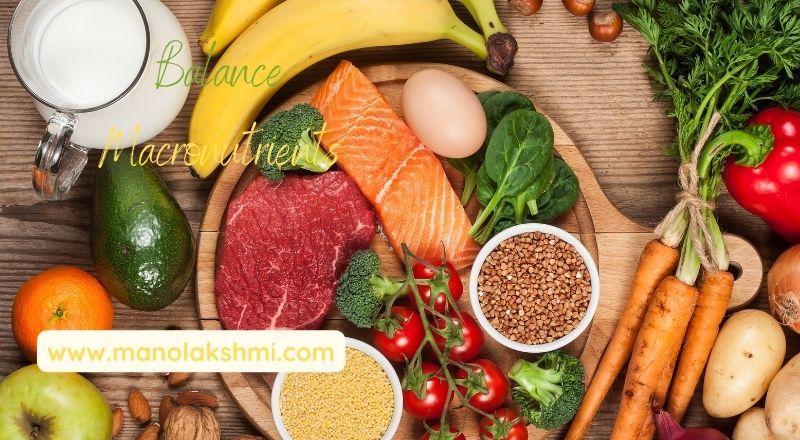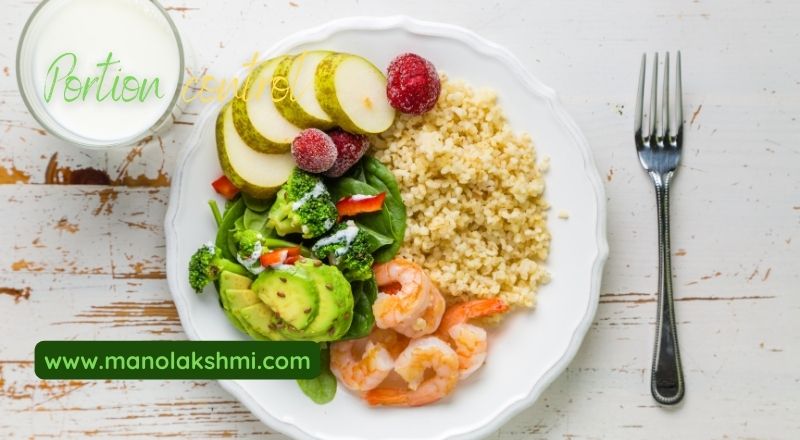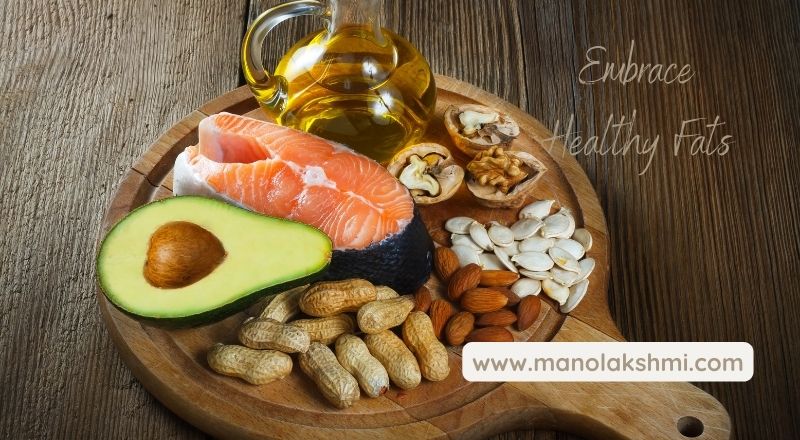What’s the food decisions?
It is not entirely clear what the user means by “food decisions.” However, assuming that the user is referring to making informed choices about what to eat, here are some points to consider:
Eating a balanced diet that includes a variety of food groups is important for overall health and well-being.
Eating plenty of fruits and vegetables, whole grains, lean proteins, and healthy fats is recommended.
Processed and high-fat foods should be consumed in moderation.
Controlling food intake is also essential to prevent overeating and weight gain.
It can be helpful to plan meals and snacks in advance, and to have healthy options readily available.
Paying attention to hunger and satiety signals can help prevent overeating.
Staying hydrated by consuming plenty of water throughout the day is also critical.
For individuals with specific dietary needs or restrictions, consulting with a registered dietitian can be helpful in making informed food choices.
Making healthy food decisions can be a valuable step towards improving your well-being. Here’s an ultimate guide to help you make informed choices:
Prioritize Whole Foods:
Option for unprocessed or minimally processed foods like fruits, vegetables, whole grains, lean proteins, and nuts. These foods are rich in nutrients and generally healthier than heavily processed options.

Prioritize Whole Foods – Whole Foods is a grocery store chain that sells organic and natural foods. It is known for its high-quality products and its commitment to sustainability. Whole Foods has been praised for its efforts to reduce its environmental impact and to promote ethical treatment of animals. It has also been criticized for its high prices and for its exclusivity.
If you prioritize Whole Foods, you are likely to be someone who cares about the environment and who wants to eat healthy food. You are also likely to be willing to pay a premium for these things. You may also be someone who values ethical consumerism and who wants to support companies that are committed to sustainability and social responsibility.
However, if you are on a tight budget or if you are not interested in organic or natural foods, then Whole Foods may not be the best choice for you. There are many other grocery stores that offer a wide variety of products at lower prices.
Read Nutritional Labels: Food Decisions
Pay attention to the nutritional information on food packaging. Look for low levels of unhealthy ingredients like added sugars, trans fats, and sodium. Aim for foods high in fiber, vitamins, and minerals.

Reading nutrition labels is important for making informed decisions about what you eat. When you read a nutritional label, you can learn about the amount of calories, fat, sugar, and other nutrients in a food product. This information can help you choose foods that are healthy for you.
Look at the serving size. The serving size is the amount of food that is being described on the label. It is important to pay attention to the serving size because the nutrient information is based on that amount.
Compare the nutrient information to the Daily Value (DV). The DV is a standard that tells you how much of a nutrient you need each day. DV is based on a 2,000-calorie diet. If a food has more than 100% of the DV for a nutrient, it is considered to be a high source of that nutrient.
Look at the ingredients list. The ingredients list tells you what is in the food in order of weight. The first ingredient is the one that is in the food in the highest amount.
Decide foods low in saturated fat, trans fat, cholesterol, sodium, and added sugar. Select foods rich in fiber, vitamins, and minerals.
Reading nutrition labels can help you make healthy choices about what you eat. By following these tips, you can learn to make informed food decisions about your food choices.
Balance Macronutrients:
Strive for a balance of carbohydrates, proteins, and healthy fats in your meals. Incorporate a variety of food sources to ensure you’re getting a diverse range of nutrients.

Balanced Macronutrients are the three main nutrients that your body needs in large amounts: carbohydrates, protein, and fat. They provide energy to the body, help build and repair tissues, and regulate many important bodily functions.
Carbohydrates are your body’s main source of energy. They are found in foods like bread, pasta, rice, cereal, fruits, and vegetables.
Protein is essential for building and repairing tissues. Found in meals along with meat, poultry, fish, eggs, dairy products, beans, and nuts.
Fat is also essential for your body. It helps absorb vitamins, provides energy, and helps keep you warm. It’s found in foods like meat, poultry, fish, eggs, dairy products, oils, and nuts.
It is important to balance your macronutrients to get the energy and nutrients your body needs. His recommended daily intake for macronutrients is:
Carbohydrates: 45-65% of your daily calories
Protein: 10-35% of your daily calories
Fat: 20-35% of your daily calories
You can balance your macronutrients by eating a variety of foods from all food groups. For example, you could have a breakfast of oatmeal with fruit and nuts, a lunch of chicken salad on whole-wheat bread, and a dinner of salmon with roasted vegetables.
If you are trying to lose weight or improve your health, you may need to adjust your macronutrient intake. Talk to your doctor or a registered dietitian to learn more about how to balance your macronutrients for your individual needs.
Portion Control: Food Decisions
Watch portion sizes to avoid overeating. Use measuring tools or visual cues to estimate appropriate serving sizes. Remember, even healthy foods can contribute to weight gain if consumed excessively.

Portion control refers to eating less food. It is a common strategy for weight loss and weight management. Portion control can be achieved by using smaller plates, eating slowly, and avoiding distractions while eating. It is also important to be aware of the serving sizes of different foods. Many restaurants and fast food chains serve portions that are much larger than the recommended serving size. By being aware of portion sizes and making conscious choices about how much food you eat, you can help manage your weight and improve your health.
Here are some tips for portion control:
Use smaller plates.
Eat slowly.
Avoid distractions while eating.
Be aware of the serving sizes of different foods.
Choose foods that are high in fiber and water, as these foods will help you feel full.
Drink plenty of water.
Exercise regularly.
Portion control is an important part of a healthy lifestyle. By following these tips, you can help to manage your weight and improve your overall health.
Stay hydrated:
Drink lots of water at some point in the day to stay hydrated. Limit sugary drinks and choose water, herbal teas, or fortified waters instead.

Proper hydration is essential to maintaining health and well-being. Here are some reasons why you should aim to drink plenty of water throughout the day:
Water helps to regulate body temperature and prevent dehydration, which can lead to headaches, fatigue, and other health issues.
Drinking water can aid in digestion and prevent constipation.
It can also help to flush toxins out of the body and improve kidney function.
Water is essential for healthy skin, as it helps to keep it hydrated and prevent dryness.
Staying hydrated can also improve your mood and cognitive function, aiding in better focus and mental clarity.
To ensure that you are drinking enough water, try carrying a reusable water bottle with you throughout the day and refilling it regularly. You can also incorporate water-rich foods into your diet, such as cucumbers, watermelon, and celery. Remember, staying hydrated is an easy and simple way to improve your overall health and well-being.
Minimize Added Sugars:
Be cautious of foods and drinks with high sugar content. Choose natural sweeteners like honey, maple syrup, or fruits when needed, and limit the consumption of sugary snacks, sodas, and desserts.

Minimize Added Sugars – Counted sugars are sugars and syrups that are added to foods and drinks during processing or rehearsal. They are found in a wide variety of products, including soda, candy, baked goods, and even savory foods like salad dressings and condiments. Added sugars can provide calories without any nutritional value, and they can contribute to weight gain, tooth decay, and other health problems.
There are many ways to minimize added sugars in your diet. Here are a few tips:
Read food labels carefully and look for products that are low in added sugars.
Choose fresh fruits and vegetables over processed foods.
Limit intake of sugary drinks such as carbonated drinks, juices, and sports drinks.
Make your own healthy snacks at home, such as trail mix, yogurt, or fruit.
When you do eat or drink something that contains added sugars, enjoy it in moderation.
By following these tips, you can reduce your intake of added sugars and improve your overall health.
Include Lean Proteins:
Incorporate lean protein sources such as skinless poultry, fish, beans, lentils, tofu, or Greek yogurt into your diet. Protein helps with muscle growth, repair, and satiety.

Adding lean proteins to your diet is an excellent way to maintain good health and keep your body functioning at its best. Here are some reasons why including lean proteins in your diet is important:
A Lean proteins are low in saturated fats, which can help you maintain a healthy weight and reduce your risk of heart disease.
Lean proteins are a good source of amino acids, which are essential for building and repairing muscle tissue in your body.
A Lean proteins can help you feel fuller for longer periods of time, which can help you eat less overall and maintain a healthy weight.
Lean proteins are important for maintaining strong bones, as they provide the necessary nutrients for bone growth and development.
Here are some great sources of lean proteins to include in your diet:
Skinless chicken breasts
Turkey breast
Fish, such as salmon, tuna, and cod
Lean beef such as sirloin and tenderloin
Beans and legumes along with lentils, chickpeas, and black beans
Low-fat dairy merchandise along with Greek yogurt and cottage cheese
So, if you’re looking to improve your health and nutrition, be sure to include lean proteins in your diet.
Embrace Healthy Fats:
Include sources of healthy fats like avocados, nuts, seeds, olive oil, and fatty fish (e.g., salmon, mackerel) in your diet. These fats support brain function, heart health, and nutrient absorption.

Including healthy fats in your diet has many benefits for your overall health.
Choose foods that are high in monounsaturated and polyunsaturated fats, such as avocados, nuts, seeds, and fatty fish like salmon.
Use oils that are rich in healthy fats, such as olive oil, coconut oil, or avocado oil, when cooking or preparing meals.
Specify your intake of saturated and trans fats found in processed and fried foods.
Add more plant-based sources of healthy fats to your diet, such as chia seeds, flaxseeds, and hemp seeds.
Incorporate healthy fats into your snacks, such as having a handful of nuts or a serving of avocado with some veggies.
By embracing healthy fats, you can improve your heart health, boost your brain function, and even aid in weight loss. So next time you reach for a snack, consider adding some healthy fats into the mix.
Mindful Eating: Food Decisions
Mindful eating is a practice that involves being present and fully involved during a meal. It is about paying attention to the sensory experience of food, including the taste, texture, and aroma, as well as the physical feelings of hunger and fullness.

Eat without distractions: Avoid eating while watching TV, using your phone, or working on the computer. Focus on the food in front of you and the experience of eating it.
Slow down: Take your time during your meal and try to enjoy every bite. This will allow you to fully experience the taste and texture of the food.
Listen to your body: Expand attention to your hunger and fullness signals. Consume when you’re hungry and stop when you’re full.
Engage your senses: Take note of the color, smell, and texture of your food. This can help you fully experience the meal and appreciate it more.
Practice gratitude: Take a moment to appreciate the food in front of you and all the people and resources that went into producing it.
Practicing mindful eating can have a number of benefits, including improved digestion, better food choices, and a greater appreciation for food. By being present and engaged in the act of eating, we can form a healthier, more positive relationship with food and our bodies.
Seek expert advice: Food Decisions
If you have specific dietary needs or health concerns, consider consulting a registered dietitian or nutritionist. We can furnish you with personalized advice and support.

If you have specific dietary needs or health concerns, it is important to consult with a registered dietitian or nutritionist. They can provide personalized guidance and support to help you create a healthy eating plan that meets your individual needs. A registered dietitian or nutritionist can also help you manage your health conditions through diet and nutrition. They can teach you about the importance of eating a balanced diet, and they can help you make healthy choices about the foods you eat. They can also provide you with support and encouragement as you work to improve your health.
If you are considering making changes to your diet, it is important to talk to your doctor or a registered dietitian or nutritionist first. They can help you create a plan that is safe and effective for you.
Remember, making healthy food decisions is a journey, and it’s important to find a balance that works for you. Small, sustainable changes over time can lead to lasting improvements in your overall health and well-being.
Visit and support our page: Skincare: Best Tips for women’s Skin
